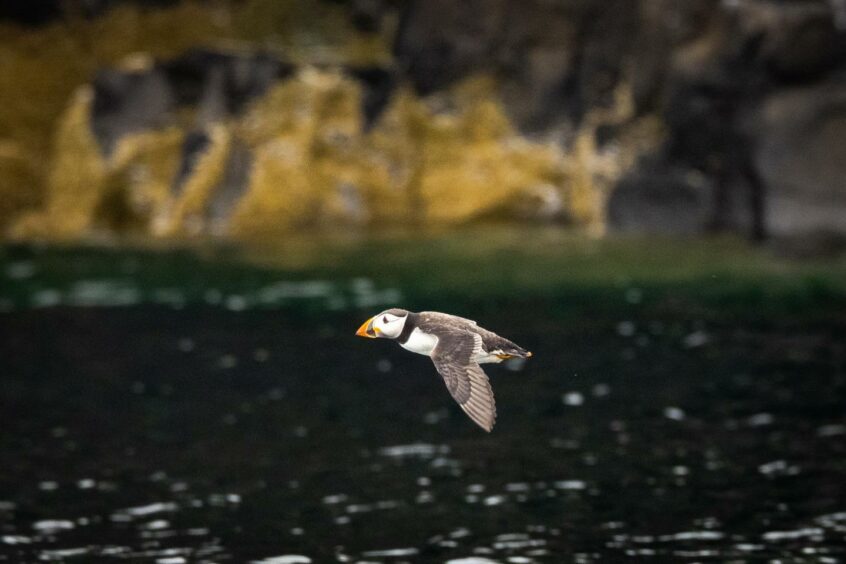
A leading charity has expressed concerns about the potentially devastating impact of ScotWind on Scotland’s seabirds.
The Royal Society for the Protection of Birds (RSPB) Scotland says the scale of new offshore wind farms could “accelerate some seabird species towards extinction” unless there’s major action.
According to the organisation, the projects already approved in Scotland are forecast to “kill hundreds of seabirds”, ranging from Kittiwakes to Puffins.
And the new raft of developments, which will be greater in size, would “greatly increase” the impact on wildlife.
Crown Estate Scotland announced yesterday that 17 new offshore wind project ad been approved through the ScotWind process.
It means that hundreds of new turbines will be deployed around Scotland’s coast in the coming years.
Aedan Smith, head of policy and advocacy for RSPB Scotland, said: “Today’s announcement from the First Minister Nicola Sturgeon that huge new offshore windfarms have been granted leases by the Scottish Government shows the welcome scale of interest in developing in Scotland’s waters to address climate change, which is one of the greatest threats to wildlife and people. However, without major action from the Scottish Government, the scale of these new windfarms could cause greater harm to Scotland’s internationally important seabirds than the effects of climate change they are seeking to address and could also accelerate some seabird species towards extinction in Scotland.
“Offshore wind has an important role to play in helping halt climate change. However, the offshore wind projects already consented in Scotland are predicted to kill hundreds of seabirds like kittiwakes, gannets and puffins every year. The potential projects announced today would be many times bigger than those existing projects and would greatly increase those impacts.
“The First Minister has been clear that the biodiversity crisis is as important as the challenge on climate change and, as on climate change, she wants Scotland to be leading the way on protecting and restoring nature. This ambition to address the climate and nature emergency together matches RSPB Scotland’s aspirations, but if measures to address climate change fail to take account of potentially disastrous outcomes for biodiversity, then questions need to be asked. We will be seeking a meeting with the First Minister as soon as possible to get reassurance that today’s announcement on offshore wind will see Scotland leading the way on protecting and restoring Scotland’s seas for seabirds as well as delivering much-needed offshore wind.”
Recommended for you

